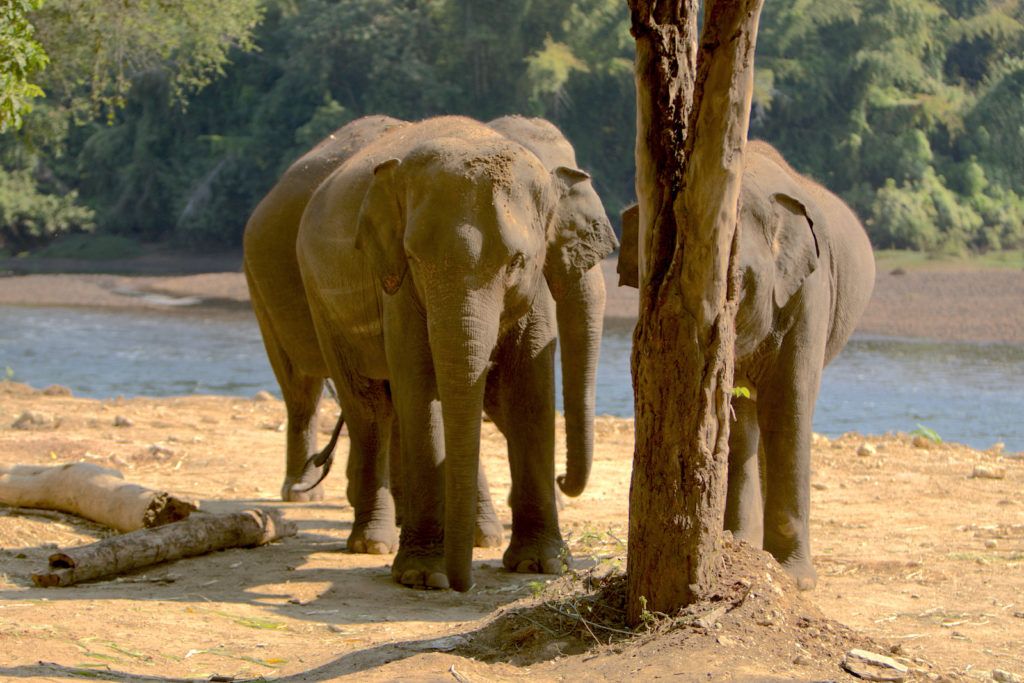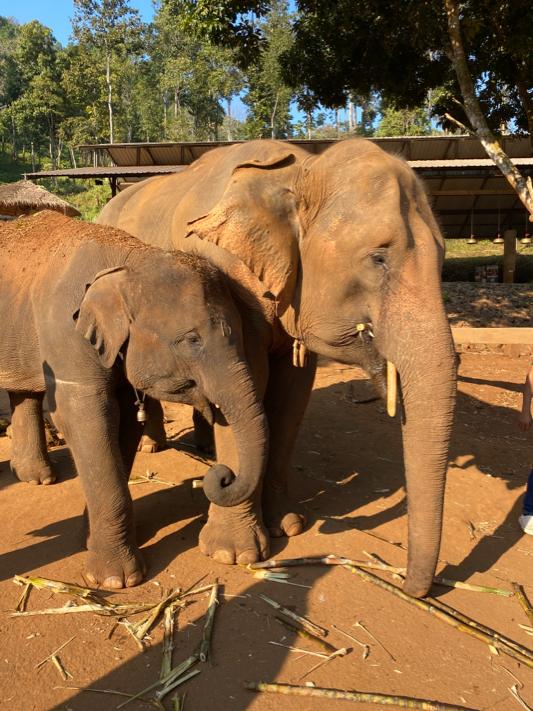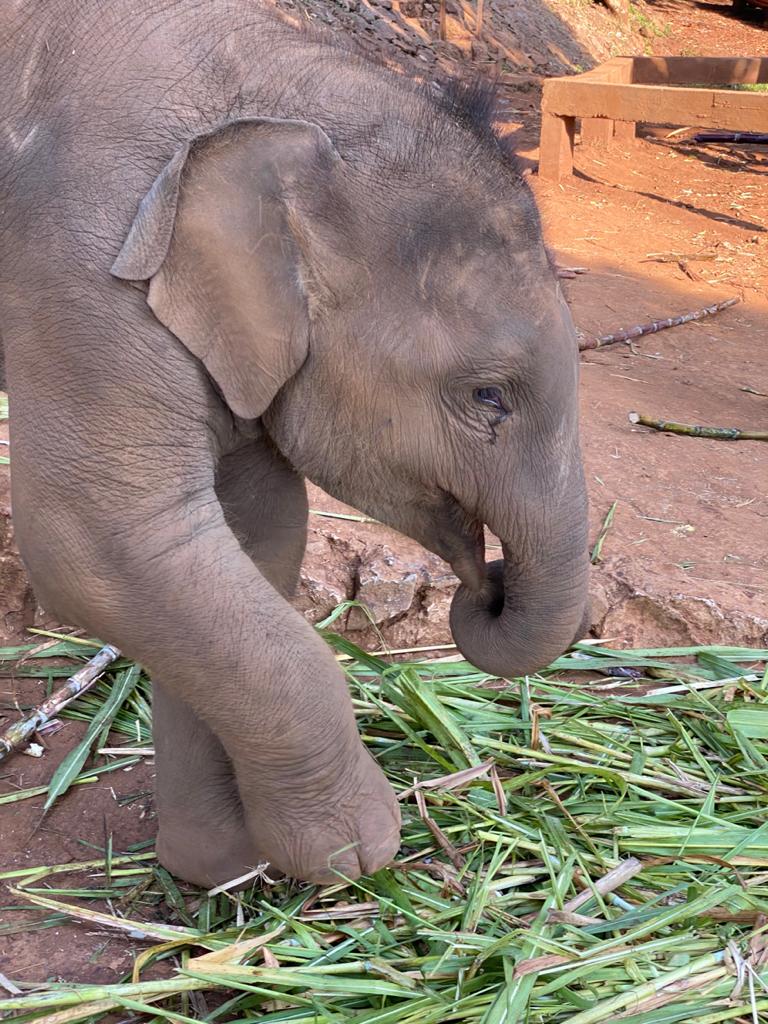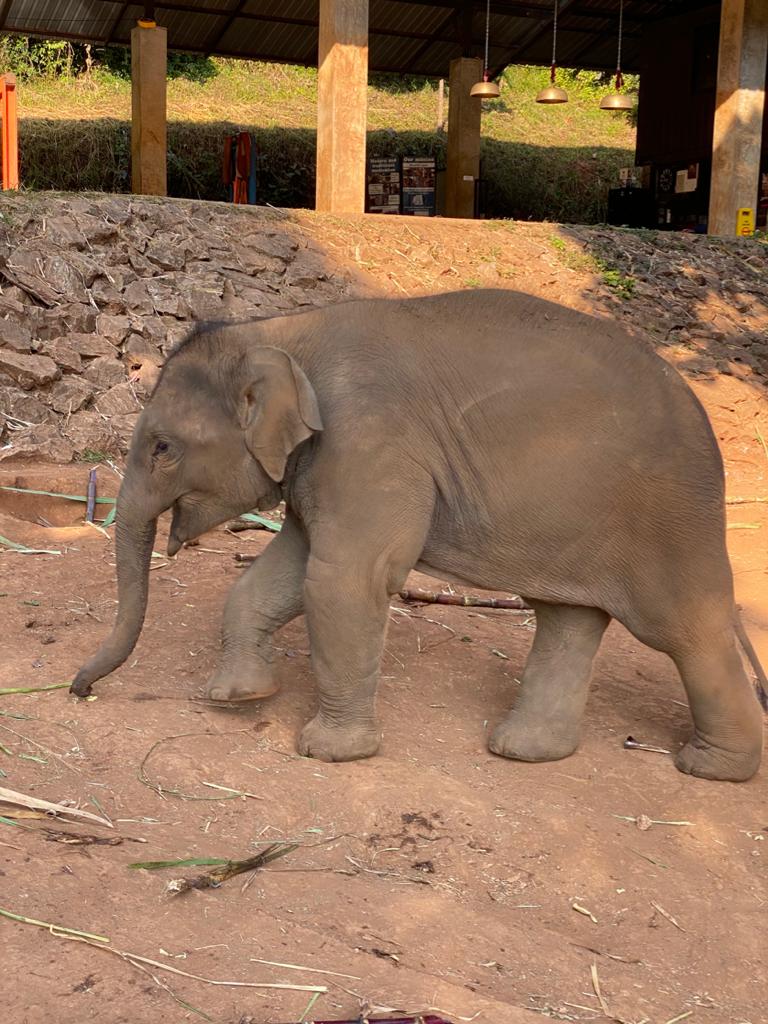Elephants are one of the planet’s most fascinating and majestic mammals. These sweet creatures are not only highly intelligent; they’re also compassionate and self-aware with an immense capacity for memory amongst many other remarkable traits.
In Thailand, elephants play an important role in Thai society. They are highly revered amongst locals and have been portrayed as sacred symbols in Buddhism for hundreds of years.
A trip to our beautiful country provides an unparalleled opportunity to get up close and personal with these very special creatures. It offers the opportunity to learn about how to protect and preserve the Asian elephant population.
World Elephant Day & Elephant Experiences in Thailand
August 12th commemorates the annual celebration of World Elephant Day, created in an effort to gather support for and honor these majestic creatures. The escalation of poaching, habitat loss, human-elephant conflict and mistreatment in captivity are just some of the threats to both African and Asian elephants that are brought to attention on this annual day.
Thailand is working to improve current and future standards with education and a dedicated network of elephant camps, mahouts (elephant caretakers), animal welfare specialists, and villages reliant on elephant tourism who are committed to providing healthier, sustainable environments where elephants can thrive.
Tourism remains a vital source of income to support these efforts, and traveler’s choices can directly impact elephant welfare and the future of elephant tourism. Connecting with an elephant in Thailand can be a transformative experience.

Elephant experiences have long been popular with visitors and while it has taken time to understand the best ways in which to implement ethical elephant tourism, times are changing with active support by the Thai government to better improve current and future standards. Today, there are many welfare-based operations that are educating elephant owners, mahouts (elephant caregivers) and visitors to change and adapt ancient practices to further improve elephant welfare.
Here are just some of the important, ethical facets of Thailand’s elephant tourism industry that are taking it into the future:

Conservation
Thailand is a small country with a population of over 69 million people and thus, little land for elephants to roam in the wild. Like horses and camels, elephants have been domesticated for thousands of years. Much of Thailand’s elephant population worked in the logging industry until this practice was banned in 1989. Though the ban was the right decision for animal welfare, it left domesticated elephants without work. Since it is often unsafe to return domesticated animals to the wild, the most humane and ethical way to keep elephants active and cared for was to involve them in tourism. Many of these elephant sanctuaries offer safe and secure refuge for elephants and a unique and wonderful human-animal interaction for visitors.

Rescue
Many Thai elephant camps foster animals that have experienced loss, stress, and trauma. They serve as a sanctuary as well as rescue and recovery centres. The money raised from visitation is used towards necessary nutrition, healthcare, rehab, positive training and so much more.
Educational Programs
Educational programs are an important aspect of the experience at many elephant sanctuaries. It is important that visitors learn about the plight of the animals and the need to protect and take care of them.
Educational programs allow visitors to gain an understanding of the history and background of the revered Thai elephants as well as why they are so important to the country, their significance in Buddhism, their biology and the behaviours they display to indicate wellbeing.
One of the most exciting aspects of elephant education is that it teaches visitors how to safely and positively engage with domesticated elephants via words and voice techniques. This leads to kind methods of engaging with the animals and sharing a very special day taking care of them.

Welfare and Relationship building with elephants
Speaking of taking care of elephants; a half, full or multi-day program of this nature is one of the key elements in supporting elephant welfare. Programs that allow visitors to bond with the animals in an intimate way allow visitors to gain a real understanding of what it takes to provide care for an elephant and see firsthand why these sanctuaries are vital for the wellbeing of Thai elephants.
Visitors are taught how to approach an elephant, how to check their health, and how to communicate with the animals through spoken commands. Going through a relationship-building program encourages visitors to intimately take care of these beautiful creatures in natural ways such as feeding or walking with them through the jungle.
Many sanctuaries are determined to provide elephants with the highest quality of life possible and human-elephant interaction is what makes them so special. Moreover, it ensures what is often a life-enhancing experience with these magnificent animals while learning about them and ultimately helping them in their natural environment.
Elephant Care: Myths vs Facts
Riding Elephants
Myth: “Hurts the elephant and should be banned.”
Fact: Riding the elephant does not harm the elephant as long as their needs are met including proper diet, resting time, health checks, social interactions, mahout-ship, shelter, etc.
Source: Dr. Chatchote Thitaram, Assistant Professor in the Department of Companion Animals and Wildlife Clinics, Faculty of Veterinary Medicine, Chiang Mai University, Thailand
Reintroduction into the Wild
Myth: “Captive elephants should be reintroduced into the wild.”
Fact: In a perfect world, yes. But poaching, human-elephant conflict and a lack of suitable habitats means elephants currently have limited release options. Governments and environmental groups are working hard to solve these issues. Until elephants can live in the wild without the risk of harm, creating excellent levels of captive elephant management is the best way to protect and conserve this endangered species. Research shows that domesticated elephants enjoy a long and healthy life under the responsible care of its “mahout” or caretaker.
Source: Dr. Ingrid Suter, Communications & Policy Officer, Asian Captive Elephant Standards
Use of Bull Hooks
Myth: “A bull hook is used to control the elephant in abuse tactics.”
Fact: The bull hook was developed as a guiding tool and safety measure for mahouts and is no more damaging than a reign in a horses’ mouth. The hook is for use in conjunction with verbal commands and never as a way to control the elephant.
Source: Dr. Ingrid Suter, Communications & Policy Officer, Asian Captive Elephant Standards
UPDATE: August 15th, 2020
On August 14, 2020, the Tourism Authority of Thailand (TAT) and the Thai elephant industry held a special forum that discussed ways to better monitor elephant tourism attractions. Mr. Yuthasak Supasorn, Governor of TAT, said, “This forum was designed to brainstorm amongst a broad cross-section of stakeholders in response to media reports about alleged maltreatment of animals (monkeys and elephants) for tourism.
“It is well-known that elephants have been an integral part of Thai society for centuries. Thailand also has a Thai Elephant Day. We honor elephants as an important animal of Thailand. Elephants and Thai people have lived side by side for centuries. For them, elephants are members of their families.”
The Governor said that as part of TAT’s vision for Thailand as a preferred destination, a strategy for sustainability has been established under the project called “Elephant Care Tourism” in order to offer tourism that cares about the Thai elephant. This, he said, will be based on three pillars: elephant welfare, elephant conservation, and clear standards. It will operate under a strategy known as the 3Cs:
- Communication for wider public awareness through factual information about taking care of elephants in Thailand. This is an important issue, which should enhance public understanding based on accurate information.
- Collaboration with each other in working under international norms. The entire tourism industry must discuss the matter jointly, including both Thais and expatriates.
- Compromise on standards that are acceptable to all parties, which will allow us to move forward positively and constructively for a common benefit.
To read more about what was discussed at the forum, read the press release here.
Live Kindly recently published an article about elephant tourism in Thailand. The writer shared her experience at elephant tourism camps in Thailand prior to the pandemic. She wrote about Thai culture and her discussions with volunteers, activists, camp owners, scientists, mahouts, and veterinarians to further understand the situation.
To read more about her elephant tourism experience, check out this article on Live Kindly here.





